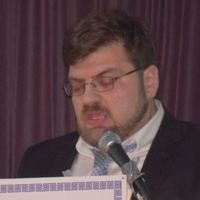
Alexander G. Colombos
New Mexico Highlands University, Education-Vocational Rehabilitation Counseling, Alumnus of the MA prgram; graduated with GPA=4.0
New York Institute of Technology, Human Relations Psychology-Clinical Counseling Option, School of Allied Health Professions, Alumnus of the MPS (Master of Professional Studies program; graduated with distinctions (GPA=4.0); honored by the "Psi Chi" National Honor Society in Psychology by becoming a member
Prometheus Greek Teachers Association of New York - Σύλλογος Ελλήνων Εκπαιδευτικών Νέας Υόρκης "Ο Προμηθεύς", Greek-American Education, Board Member-Chairman of the Technology & Electronic Communication Committee
Queens College of the City University of New York, Psychology,History, Art History, MA in History and BA in Psychology and History with a Minor in Art History & Archaeology
Certified Rehab Counselor (CRC, MA, MPS, BA)-Educator-Historian (MA, BA)-MA Psychologist specializing in psychodynamic/Jungian Voc/Ed/Rehab assessment/counseling, History of Psychology/Medicine, Theater History/Ancient Greek Theater & the Socratic Method as healing modalities, Psychohistory/Psychoarchaeology of Greece, the Mediterranean & their cities. Student in: 1) Educational Psychology EdD Program, California Coast University (Started November 2017); 2) Genesis School of Natural Health, Clinical Herbology & Traditional Doctor of Naturopathy program (Started January 2021); 3) European University of Cyprus MA Program in Hellenic Studies: Archaeology and Art (StartedSpring 2022); and 4) PhD program in Biblical Archaeology, NTS (started: Jung 2021) - Former Secretary-General, Prometheus Greek Teachers Association (NY, USA) Work experience: 1) Certified Rehabilitation Counselor (CRC): Vocational & Educational Rehabilitation Counseling and Assessment of people with psychiatric, developmental/intellectual and physical disabilities, addictions (substance abuse and alcoholism) and/or criminal background/formerly incarcerated. 2) NYS Certified Social Studies/History Teacher (grades: 7-12). 3) Teaching Greek Studies in various NYC Greek Parochial Schools and public schools. Passed the NYS Dep. of Ed. Content Subject Test (CST) in Teaching Modern Greek as a Second Language/Greek Philology with 300/300! 4) Medical Greek Interpreter, and 5) Columnist/Journalist for Greek-American Media (Press & Online).
Address: Ancient Psyche (blog): www.psychohistory-psychoarchaeology.blogspot.com
My blog is on the interactions of psychoeducational sciences (education, psychology and counseling) with culture and civilization with an emphasis in Greek (ancient, byzantine & modern) Psychohistory and Psychoarchaeology. There are many of my papers and articles posted there as well as news on the above topics.
Address: Ancient Psyche (blog): www.psychohistory-psychoarchaeology.blogspot.com
My blog is on the interactions of psychoeducational sciences (education, psychology and counseling) with culture and civilization with an emphasis in Greek (ancient, byzantine & modern) Psychohistory and Psychoarchaeology. There are many of my papers and articles posted there as well as news on the above topics.
less
Related Authors
Daniel D. Hutto
University of Wollongong
Galen Strawson
The University of Texas at Austin
Konrad Banicki
Jagiellonian University
Judith L Green
University of California, Santa Barbara
Steven Pinker
Harvard University
Christina Williamson
University of Groningen
Alejandra B Osorio
Wellesley College
David Seamon
Kansas State University
Shaun Gallagher
University of Memphis
John Johnson
Pennsylvania State University
InterestsView All (514)
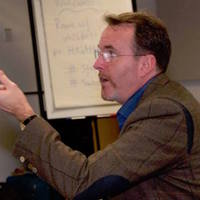

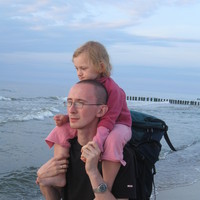
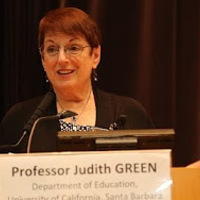
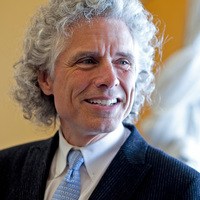
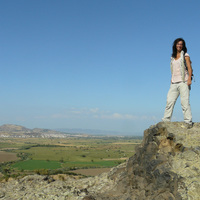




Uploads
Papers & Articles by Alexander G. Colombos
Keywords: Jung, Collective Unconscious, Persona, Shadow, Greek archetypes, psychological types, complex
You can read the article on this link: https://ijemh.com/current-issue.php?issueid=45
Keywords: St Helen, St Helena, Constantine the Great, the elevation of the Holy Cross, Eusebius of Caesarea, Josephus. Cyril of Alexandria
Keywords: St Helen, St Helena, Constantine the Great, the elevation of the Holy Cross, Eusebius of Caesarea, Josephus. Cyril of Alexandria
Σελ. 19.
It examines the special meaning of celebrating the Greek War of Independence of March 25, 1821 in the Greek-American community of New York. There is a multifaceted meaning here: 1) not only celebrating Greek pride, but also understanding the contribution of American and Greek-American historical figures and groups in the Greek War of Indepedence and honoring the Greek language & culture teachers, students, and their parents; 2) understanding and appreciating the urgency of our times that requires us to dedicate ourselves even more to this endeavor as there are emerging trends in Greece and the Greek-American community that are geared toward globalization, simplification of the Greek language, deconstruction and revision of Greek history for political reasons, debate against the parade and the Greek identity. Such deconstructionist and anarchist ideologies call patriotism "racism" and "fascism" and aim to patronize ambivelent ethnogenetic theories of countries that make territorial claims against Greece. In fact those "Greek" traitors and psuedoscholars just need to secure their good standing with non-Greek universities, a type of social desirability in academia that is sinister and dirty academic politics, as this suggests issues of money and power involved; Moreover, there are some lobbies and pressure groups in academia and the political arena that strategize the falsification of Greek history, the promotion of Balkan anti-Greek nationalism and the imperialist claims of some of those countries against Greek territories; 3) the current emerging trend of Ecumenism and All-Faith movement that some Greek Orthodox priests unfortunately embrace solely for their inadequacy to learn Greek and study or understand Greek culture, so they turn this inadequacy into ideology to justify themselves saying "this is the US ans you need to get acclimated and surrender to the melting pot"! This paper argues that there can be a Greek-American identity that embraces both cultures and points to the contributions of the American War of Indepedence of 1776 and the American Enlighment to the Greek War of Indipendence and the Greek Enlightment and urges everyone to participate in the parade, honor the Greek Studies Teachers and the students and their parents as well as all the community leaders and participants who contribute every year to the parade with their hard work and dedication.
O ΦΙΛΗΜΩΝ, ΤΟ ΚΟΚΚΙΝΟ ΒΙΒΛΙΟ ΚΑΙ Η ΣΚΙΑ ΤΟΥ ΓΙΟΥΝΓΚ (JUNG) - Philemon, the Red book, and Jung's Shadow
Abstract (in English of the original Greek article)
"Philemon, the Red Book, and Jung's shadow":
This is about an article on the recently discovered and published book of Carl Gustav Jung, the famous Swiss psychologist and father of Analytical Psychology. From Jung's theory of shadow (part of human personality structure and psyche's component to Jung's own "shadow" or revealed dark side... Was he a "saint" or a "sinner"? Besides of being the father of Depth Psychology and a pioneer of modern psychodynamic and humanistic psychologies, was he also the father of a new religion...even the father of New Age, as some scholars claim? Was he a Christian, a pagan or even of his own religion? Mainstream psychology of the academic establishment has acted as a gatekeeper of any psychological theory that integrates psychology and spirituality/religion/ancient & indigenous cultures/new science & quantum physics.
What happened while Jung was writing the Red Book? Who was Philemon? Was he a spirit that visited him? Was it a figment of his imagination, a delusion, a hallucination, an interdimensional being, an existing lifeform or energy force of the collective unconscious, an angel or even a demon as some scholars, theologians and priests may argue? Did he just lose his mind? Did his work took over his everyday life? How can we explain the fact that they were witnesses when unexplained phenomena happened, such as apparitions, objects moving in the house, footsteps, noises, doorbell ringing and nobody was there? Although some Christians, especially Greek Orthodox priests and theologians (usually those whose background is limited to conservative/fundamentalist close-minded theology only) may not approve the Jungian perspective, especially after the new revelations made by the discovery of the Red Book, still many Christians, such as Greek Orthodox psychologists and even priests who are also pastoral counselors, psychologists or psychiatrists may approve the Jungian perspective and use it in their practice.
One thing is certain: Jung surpassed Freud by taking psychology and psychoanalysis to the next level, which is the collective unconscious. Freud misused Greek mythology, because he lacked a basic knowledge and understanding of classics unlike Jung. So Freud came up with Oedipus Complex, a psychological phenomenon that truly exists and he brilliantly discovered, indeed, but with a wrong name, because it should not be "Oedipus". Freud spoke about a concept that Sophocles never thought of: Oedipus unconscious tendencies of incest. All that Sophocles wanted to say was something even more important than the Oedipus Complex and that was "Fate" or "Pepromenon" in Greek. Greeks of all ages, from antiquity to the present, we still say in 5th century BC classical Greek a proverb that is well-known and frequently used in today's Greece: "To pepromenon fygein adynaton" (it's impossible to get away with Fate"), which is not deterministic or fatalistic or against "free will" (well, there is some free will to a certain point, but still there are rules in the universe), but it refers to some universal forces operating like a blueprint in the acausal/quantum field that is beyond space-time and that is keen to the World/Transpersonal/Collective Unconscious. So what Sophocles actually talked about was the Numen's interference with every human life and psyche in an acausal field of no space-time. And, as it is already said, that definitely comes from the World/Transpersonal/Collective Unconscious. For Jung, Philemon belonged to that world. His Red Book, a modern illuminated manuscript with beautiful imaginative and colorful pictures and medieval revival-styled, particularly Gothic-styled calligraphy laboriously painted by his own hand, is a long account of such occurrences, manifestations, and concepts that uses an elaborate visual language to convey meanings that overturn all we know or we think we know in this post-modern and post-human world! Some people who reside in the ivory towers of academia and professional practice in psychology and mental health that would be really dangerous, especially for their careers that are primarily based on academic politics... That's why Philemon and the Red Book were kept a secret by Jung himself and were locked in a drawer until they were accidently found!
Unlike Freud, Jung went beyond sexual drives and automatic functions of the psyche, he used the Greek word "psyche" for soul, including many tenets of Greek psychology/philosophy, and emphasized all these subjects which were neglected at his times and...some of them are still neglected: Mythology (i.e Greek), midlife, history and culture, religion and spirituality, ancient philosophy in psychology, classics, early Christian/patristic/byzantine studies, psychoanalytic anthropology, ethnographic studies of indigenous cultures in psychology, femininity and the sacred, ancient wisdom, alchemy, mandala, astrology, paranormal/parasychological/transpersonal studies, new science, mind/body medicine, and quantum physics.
The fact that Jung believed that he was visited by Philemon, does not necessarily mean that he endorsed all that Philemon said to him. Of course, that applies only in the case we don't believe that it was not his own voices of his own unconscious or even a mere figment of his imagination, a delusion or a hallucination. Jung did not really attack Christianity in his writings. On the contrary, he put theology, early Christian Studies, and Byzantine Studies in the ballgame of psychology, which was so far inaccessible to those subjects, even ridiculous to think of that! He actually showed respect to those writings and used their language and semiotics as important constructive tools for his psychological theories and interpretations of the psyche and its surrounding world. So what if Philemon actually came from the Collective Unconscious world, a world whose glimpses and reflections we can barely start to see now with the most recent advances of quantum mechanics and mind/body medicine? What if Jung wrote his book to warn us about what is coming to our world and to our times of Globalization and all the nightmarish things proposed in the song "Imagine" that is a global dictatorship disguised as a peaceful one just to find out soon that it has no religion, no nation, no history, no culture, no diversity, no individuality? We all know that Jung was not just a psychologist and a psychiatrist, but also a philosopher and a visionary. So what if he had foreseen all that and warned us about it? What if the Red Book is the manuscript in the bottle lost in the sea that we found today offshore with the message from the past concerning the future?
Jung proved that nothing is closed to an open mind, despite that some "scholars" who claim that they are making psychology super scientific are actually still having a close mind in the 21st century and because of them academia looks like a dark medieval library, like that in Eco's brilliant masterpiece "The Name of the Rose"... I chose to answer them in Latin, as Jung used Greek and Latin a lot, but I doubt if they will understand it, as all they know is mainstream psychology and modern and...post-modern knowledge (if post-modern is knowledge and not a social construct of ultra modern theorists declaring a war against tradition/orthodoxy). Well, too bad! That's their problem! So here it is: "non umbra diem" or to use Eco's closing words of the aforementioned book: "Stat rosa pristina nomine nomina nunda tenemus"!
Λέξεις-κλειδιά: Oμογένεια, Αρχιεπισκοπή Αμερικής, Άγιος Νικόλαος, Σημείο Μηδέν, Νέα Υόρκη, Δίδυμοι Πύργοι
Keywords: Jung, Collective Unconscious, Persona, Shadow, Greek archetypes, psychological types, complex
You can read the article on this link: https://ijemh.com/current-issue.php?issueid=45
Keywords: St Helen, St Helena, Constantine the Great, the elevation of the Holy Cross, Eusebius of Caesarea, Josephus. Cyril of Alexandria
Keywords: St Helen, St Helena, Constantine the Great, the elevation of the Holy Cross, Eusebius of Caesarea, Josephus. Cyril of Alexandria
Σελ. 19.
It examines the special meaning of celebrating the Greek War of Independence of March 25, 1821 in the Greek-American community of New York. There is a multifaceted meaning here: 1) not only celebrating Greek pride, but also understanding the contribution of American and Greek-American historical figures and groups in the Greek War of Indepedence and honoring the Greek language & culture teachers, students, and their parents; 2) understanding and appreciating the urgency of our times that requires us to dedicate ourselves even more to this endeavor as there are emerging trends in Greece and the Greek-American community that are geared toward globalization, simplification of the Greek language, deconstruction and revision of Greek history for political reasons, debate against the parade and the Greek identity. Such deconstructionist and anarchist ideologies call patriotism "racism" and "fascism" and aim to patronize ambivelent ethnogenetic theories of countries that make territorial claims against Greece. In fact those "Greek" traitors and psuedoscholars just need to secure their good standing with non-Greek universities, a type of social desirability in academia that is sinister and dirty academic politics, as this suggests issues of money and power involved; Moreover, there are some lobbies and pressure groups in academia and the political arena that strategize the falsification of Greek history, the promotion of Balkan anti-Greek nationalism and the imperialist claims of some of those countries against Greek territories; 3) the current emerging trend of Ecumenism and All-Faith movement that some Greek Orthodox priests unfortunately embrace solely for their inadequacy to learn Greek and study or understand Greek culture, so they turn this inadequacy into ideology to justify themselves saying "this is the US ans you need to get acclimated and surrender to the melting pot"! This paper argues that there can be a Greek-American identity that embraces both cultures and points to the contributions of the American War of Indepedence of 1776 and the American Enlighment to the Greek War of Indipendence and the Greek Enlightment and urges everyone to participate in the parade, honor the Greek Studies Teachers and the students and their parents as well as all the community leaders and participants who contribute every year to the parade with their hard work and dedication.
O ΦΙΛΗΜΩΝ, ΤΟ ΚΟΚΚΙΝΟ ΒΙΒΛΙΟ ΚΑΙ Η ΣΚΙΑ ΤΟΥ ΓΙΟΥΝΓΚ (JUNG) - Philemon, the Red book, and Jung's Shadow
Abstract (in English of the original Greek article)
"Philemon, the Red Book, and Jung's shadow":
This is about an article on the recently discovered and published book of Carl Gustav Jung, the famous Swiss psychologist and father of Analytical Psychology. From Jung's theory of shadow (part of human personality structure and psyche's component to Jung's own "shadow" or revealed dark side... Was he a "saint" or a "sinner"? Besides of being the father of Depth Psychology and a pioneer of modern psychodynamic and humanistic psychologies, was he also the father of a new religion...even the father of New Age, as some scholars claim? Was he a Christian, a pagan or even of his own religion? Mainstream psychology of the academic establishment has acted as a gatekeeper of any psychological theory that integrates psychology and spirituality/religion/ancient & indigenous cultures/new science & quantum physics.
What happened while Jung was writing the Red Book? Who was Philemon? Was he a spirit that visited him? Was it a figment of his imagination, a delusion, a hallucination, an interdimensional being, an existing lifeform or energy force of the collective unconscious, an angel or even a demon as some scholars, theologians and priests may argue? Did he just lose his mind? Did his work took over his everyday life? How can we explain the fact that they were witnesses when unexplained phenomena happened, such as apparitions, objects moving in the house, footsteps, noises, doorbell ringing and nobody was there? Although some Christians, especially Greek Orthodox priests and theologians (usually those whose background is limited to conservative/fundamentalist close-minded theology only) may not approve the Jungian perspective, especially after the new revelations made by the discovery of the Red Book, still many Christians, such as Greek Orthodox psychologists and even priests who are also pastoral counselors, psychologists or psychiatrists may approve the Jungian perspective and use it in their practice.
One thing is certain: Jung surpassed Freud by taking psychology and psychoanalysis to the next level, which is the collective unconscious. Freud misused Greek mythology, because he lacked a basic knowledge and understanding of classics unlike Jung. So Freud came up with Oedipus Complex, a psychological phenomenon that truly exists and he brilliantly discovered, indeed, but with a wrong name, because it should not be "Oedipus". Freud spoke about a concept that Sophocles never thought of: Oedipus unconscious tendencies of incest. All that Sophocles wanted to say was something even more important than the Oedipus Complex and that was "Fate" or "Pepromenon" in Greek. Greeks of all ages, from antiquity to the present, we still say in 5th century BC classical Greek a proverb that is well-known and frequently used in today's Greece: "To pepromenon fygein adynaton" (it's impossible to get away with Fate"), which is not deterministic or fatalistic or against "free will" (well, there is some free will to a certain point, but still there are rules in the universe), but it refers to some universal forces operating like a blueprint in the acausal/quantum field that is beyond space-time and that is keen to the World/Transpersonal/Collective Unconscious. So what Sophocles actually talked about was the Numen's interference with every human life and psyche in an acausal field of no space-time. And, as it is already said, that definitely comes from the World/Transpersonal/Collective Unconscious. For Jung, Philemon belonged to that world. His Red Book, a modern illuminated manuscript with beautiful imaginative and colorful pictures and medieval revival-styled, particularly Gothic-styled calligraphy laboriously painted by his own hand, is a long account of such occurrences, manifestations, and concepts that uses an elaborate visual language to convey meanings that overturn all we know or we think we know in this post-modern and post-human world! Some people who reside in the ivory towers of academia and professional practice in psychology and mental health that would be really dangerous, especially for their careers that are primarily based on academic politics... That's why Philemon and the Red Book were kept a secret by Jung himself and were locked in a drawer until they were accidently found!
Unlike Freud, Jung went beyond sexual drives and automatic functions of the psyche, he used the Greek word "psyche" for soul, including many tenets of Greek psychology/philosophy, and emphasized all these subjects which were neglected at his times and...some of them are still neglected: Mythology (i.e Greek), midlife, history and culture, religion and spirituality, ancient philosophy in psychology, classics, early Christian/patristic/byzantine studies, psychoanalytic anthropology, ethnographic studies of indigenous cultures in psychology, femininity and the sacred, ancient wisdom, alchemy, mandala, astrology, paranormal/parasychological/transpersonal studies, new science, mind/body medicine, and quantum physics.
The fact that Jung believed that he was visited by Philemon, does not necessarily mean that he endorsed all that Philemon said to him. Of course, that applies only in the case we don't believe that it was not his own voices of his own unconscious or even a mere figment of his imagination, a delusion or a hallucination. Jung did not really attack Christianity in his writings. On the contrary, he put theology, early Christian Studies, and Byzantine Studies in the ballgame of psychology, which was so far inaccessible to those subjects, even ridiculous to think of that! He actually showed respect to those writings and used their language and semiotics as important constructive tools for his psychological theories and interpretations of the psyche and its surrounding world. So what if Philemon actually came from the Collective Unconscious world, a world whose glimpses and reflections we can barely start to see now with the most recent advances of quantum mechanics and mind/body medicine? What if Jung wrote his book to warn us about what is coming to our world and to our times of Globalization and all the nightmarish things proposed in the song "Imagine" that is a global dictatorship disguised as a peaceful one just to find out soon that it has no religion, no nation, no history, no culture, no diversity, no individuality? We all know that Jung was not just a psychologist and a psychiatrist, but also a philosopher and a visionary. So what if he had foreseen all that and warned us about it? What if the Red Book is the manuscript in the bottle lost in the sea that we found today offshore with the message from the past concerning the future?
Jung proved that nothing is closed to an open mind, despite that some "scholars" who claim that they are making psychology super scientific are actually still having a close mind in the 21st century and because of them academia looks like a dark medieval library, like that in Eco's brilliant masterpiece "The Name of the Rose"... I chose to answer them in Latin, as Jung used Greek and Latin a lot, but I doubt if they will understand it, as all they know is mainstream psychology and modern and...post-modern knowledge (if post-modern is knowledge and not a social construct of ultra modern theorists declaring a war against tradition/orthodoxy). Well, too bad! That's their problem! So here it is: "non umbra diem" or to use Eco's closing words of the aforementioned book: "Stat rosa pristina nomine nomina nunda tenemus"!
Λέξεις-κλειδιά: Oμογένεια, Αρχιεπισκοπή Αμερικής, Άγιος Νικόλαος, Σημείο Μηδέν, Νέα Υόρκη, Δίδυμοι Πύργοι
In this paper evidence is explored that supports the use of Jungian creative and expressive interventions for alleviating emotional disturbances. Emotional Disturbance is a non-clinical, umbrella term used in special education that refers to a cluster of clinical disorders that share in common emotional problems that may interfere with learning and classroom management (e.g., Attention Deficit Hyperactivity Disorder, Autistic Spectrum Disorders. Creativity as an intervention appears to be most effective with persons at higher cognitive functioning levels. Therefore, Asperger’s Syndrome will be a primary focus of attention. Using creative arts and new means of expression, persons with Asperger’s Syndrome have partially or even fully recovered from a variety of symptoms (e.g., inattention, fidgeting, aggression, tantrums, echolalia, echopraxia, circling, repeating and ritualistic behaviors). These individuals are capable of understanding their deeper underlying mechanisms that cause unwanted behaviors. Thus, interventions such as dream interpretation and active imagination expressed through creative arts can be customized to individual needs. The result is greater individuation, allowing these students to be themselves and speak for themselves. Case conceptualizations are included in the application sections of this monograph.
Keywords: Jung, individuation, Emotional Disturbance, Asperger’s
Abstract
Τhe contribution of this thesis is to shed light on: a) how Alexander the Great liberated Chios in 332 BC from the Persians; b) his inscribed letters to the Chians; c) the role of the "nomographers" or literally "writers/keepers of the law" who were sent by Alexander the Great to the island along with Macedonian soldiers, the "Macedonian Guard", to free the Chians; d) how the nomographers and the Macedonian Guard sent to exile some Chians who became traitors and sided with the Persians and facilitated the return of the Chian patriots who were send in exile; e) his democratic reforms on the island that changed the tribal, religious, and political organization of the island via equal redistribution of land; and place names related to the Macedonian Guard were studied and research was conducted at those places (ethnographic, archival, and surface survey). Finds of the survey found in situ were Hellenistic and Early Christian pot shards (ostraka) and building stones. Locals were informally interviewed and Also, f) Alexander's lost "heroon" or hero cult shrine described by Plutarch's Phocion 18 is discussed as well as the possibility for a future excavation and where archaeologists should actually look at for possible location. Finally, g) Byzantine writer Hesychius' account of the myth that Alexander the Great visited the island and received the weapons of the first (mythic) king of Chios, Oinopion is examined. In other words, local tradition and legends of Alexander's presence and his soldiers' presence on the island are examined. Of course, we all know that historically, Alexander the Great was in Tyre in 332 BC when he sent his first letter to the Chians and when he liberated the island from the Persians by sending there his Macedonian Army. After Tyre, Alexander the Great continued his campaign to Asia where he died in Babylon. However, the myths of his presence on Chios are studied here in depth for the first time."
Keywords: Alexander the Great, Chios, Archaeological Surface Survey
Key words: Greek Education in the US, Greek Diaspora, Greek Language, Greek Parochial Schools, Greek Community of NY
More Info: Excerpt from my Master Thesis submitted in 2002 in fullfilment of the requirements for a Master of Arts in History from the History Department of Queens College of the City University of NY (CUNY) in Flushing, NY."
Ρωσοβυζαντινής τεχνοτροπίας της Σχολής του Νόβγκοροντ και ερμηνείας Βλαδισλάβου Αντρέγιεβ. Ιδιαίτερες ευχαριστίες στη Σχολή Αγιογραφίας "Πρόσωπον" (Μανχάταν) και στους καθηγητές της Βάλερυ Σοκόλοβα, Τατιάνα Μπερέστοβα και Δημήτρη Μπερέστοβ.
" Архангел Михаил " написана Александром Колумб. Русский / Византийская Иконка. Новгород / Владислав Андреев Cтиль . Особая благодарность к " просопон " иконописной школы и ее преподавателей Валерия Соколова , Татьяна Берестова и Дмитрий Берестов .
Λέξεις-κλειδιά: γραφή, γλώσσα, αλφάβητο, πάπυροι, περγαμηνές, εικονογραφημένα χειρόγραφα, κώδικες, χειροτεχνία, Pinterest, κριτική σκέψη, δημιουργικότητα, πρωτογενείς πηγές